Looking to lose weight, gain muscle, or simply bump up your protein? This ultimate Protein Powder Guide For Beginners will give you the scoop on everything you need to know!
Y'all know by now how much I love my protein powder. With such a busy schedule, it can be difficult to find time to achieve my macros (with food that's both healthy and easy to whip up).
That's where protein powder comes in! Because I am a big advocate of CLEAN protein powder (especially in my protein pancakes recipe), I get asked a lot of questions; Will it make you bulky, is it safe, what if I'm vegan...and so on.
And BECAUSE I say protein powder all the way, Dustin and I developed our own company that yes, makes protein powder! (And a whole lot more.) Our cleanish Brand Plant-Based Protein Powder is healthy, low carb and has 0 added sugars. Just the way I like it.
There's a good bit of misinformation out there and really, not all brands are safe for long-term use. That's why I wanted to dedicate an informative post to the topic. Because protein powder can be a great supplement to a healthy and balanced diet.
There are just some things you need to keep in mind.
Ready to debunk some false beliefs? And learn more about the little known benefits of protein powder? Keep reading!
What Is Protein Powder?
Protein powder is a condensed and powdered form of protein, made from either animal or plant sources. It can be created from eggs or milk. Or, if vegan, you can find protein powder made from peas, rice, soybeans, potatoes, and hemp.
Ever hear the term whey or casein protein? Both of these are protein powders made from milk.
Protein powder is commonly included in shakes and smoothies and enjoyed by people who are either trying to build muscle, lose weight, and/ or get more protein if they're too busy to cook 3 balanced meals each day...
Me? I'm a protein shake kind of gal. You must try my Peach Protein Shake and Blueberry Protein Shake if you get the chance. And here are 5 High Protein Fruit Smoothie Recipes.
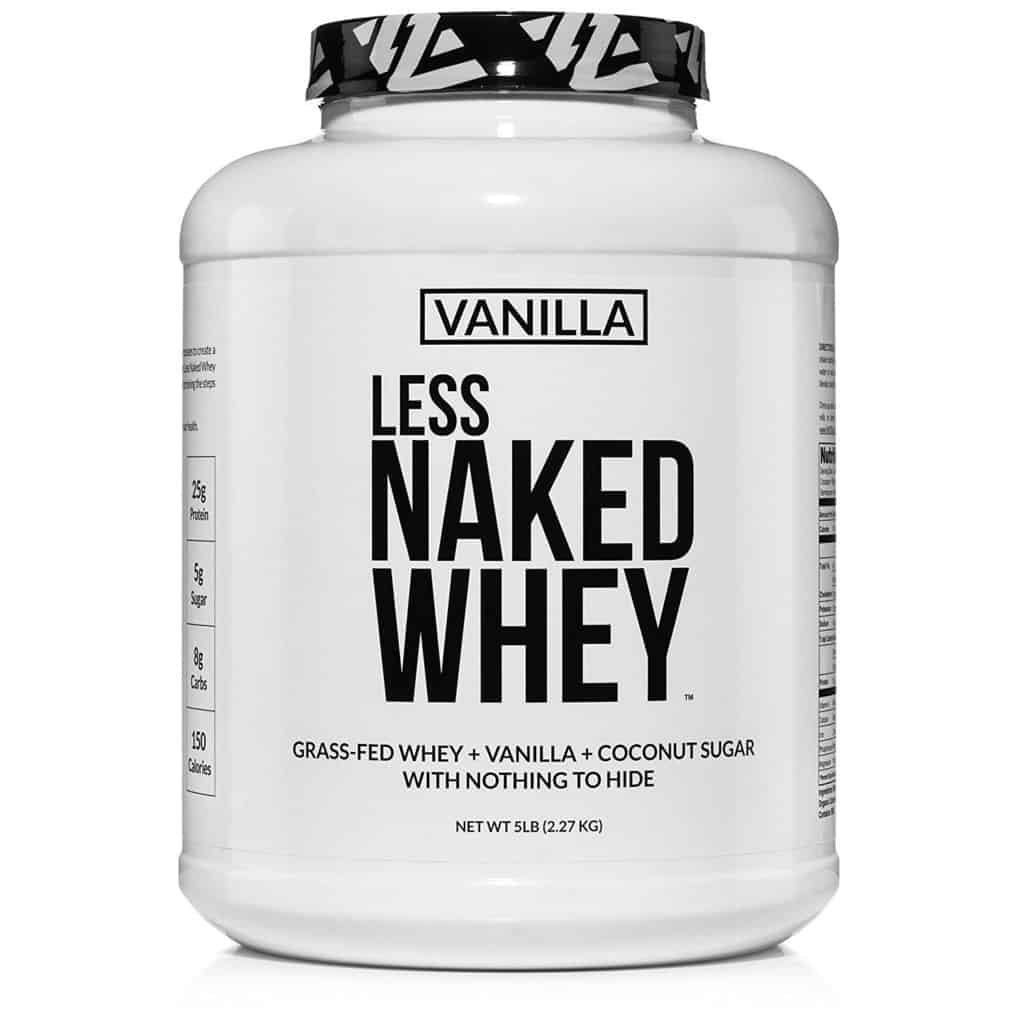
Is Protein Powder Healthy?
Protein powder is healthy and the benefits outweigh (no pun intended) the risks IF you choose the right brand. We need protein to build muscle, repair tissue, and make important enzymes and hormones that keep our systems balanced. Here's why women especially need protein (even if they don't think it's super important).
But it is essential for your health and well being that you pass on any product that is highly processed or contains weird additives. Always look at the nutrition label and avoid brands that contain things like xanthan gum, dextrin, and glucose.
As a rule of thumb, I also try to avoid added sugars and any kind of artificial flavoring. Check the label to avoid hidden sugars because I've seen powders that contain as much as 23 grams of sugar per scoop. No thanks!

What Are The Different Types?
As mentioned above, you can get protein powder derived from plant or animal sources.
Here are the 4 main types...
- Whey protein: The most common protein powder in the market! Whey protein is a complete protein that originates from milk. It's actually a direct by-product of the cheese making process (which I always found super interesting).
*It is a fast-releasing protein, so it is easily absorbed and digested. Best for faster muscle restoration and growth. - Casein protein: Also derived from milk! You may have heard it called a “time-release” protein. Casein is a slow-releasing protein so it's often taken to help with muscle recovery. It also releases amino acids, slowly but consistently, over time.
- Egg Protein: Generally made from egg whites, nixing the yolks. It's popular because egg whites provide high amounts of protein and an amino acid called leucine.
- Plant protein: You've got many options if you're following a vegan lifestyle. Plant derived protein powders include soy, hemp, pea, rice and pumpkin. Compared to the other two (whey and casein), they're more unsaturated and contain no cholesterol.
*If you wanna learn more and need help choosing a protein powder that fits your needs, check my blog post on The 4 Best Protein Powders and How To Choose a Good One.
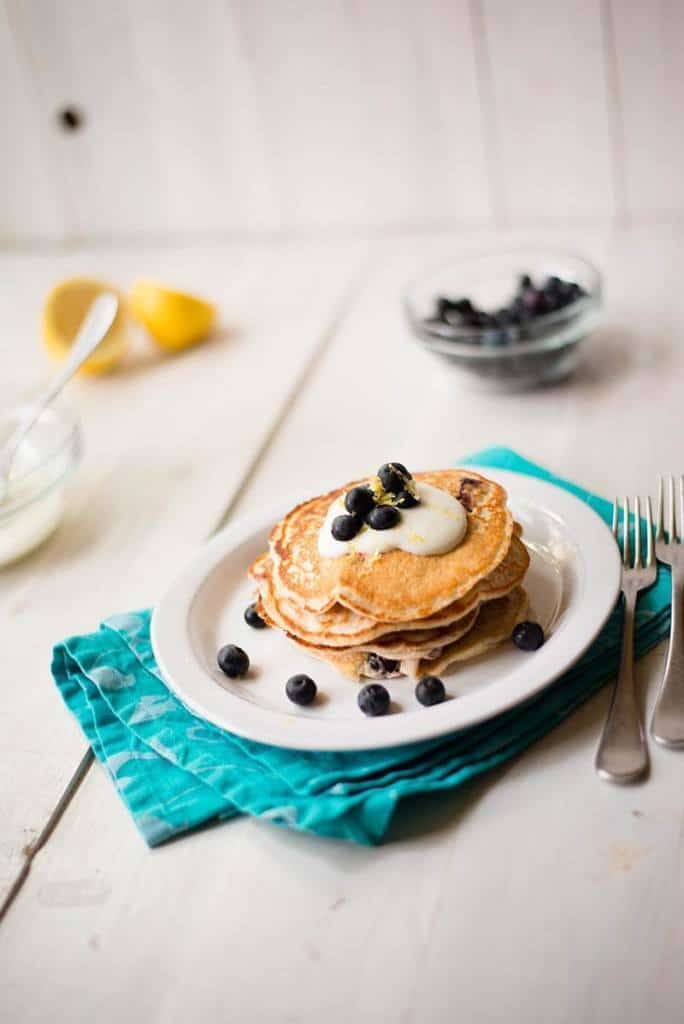
What Percentage Of Protein Should Be In Protein Powder?
A quality protein powder that I would recommend to a friend contains at least 80% protein. This is not the case if it contains fillers, additives, and hidden sugars. You'll have to take a look at the nutrition label to determine this.
How Do You Use Protein Powder?
Protein powder can be added to so many recipes! We're talking smoothies, pancakes, and baked goods...see how creative you can get. You can even use it as a substitute for flour (which I discuss more in this blog post btw).
I've made dozens of goodies like peanut butter protein cookies, no bake chocolate peanut butter protein bars, high protein lemon blueberry pancakes. And it doesn't stop there...
If you have a (high quality) unflavored protein powder, try adding it to your mashed potatoes, blend it together with dip/dressing, and even put it in your fave burger mix. Start with a small amount and build up.
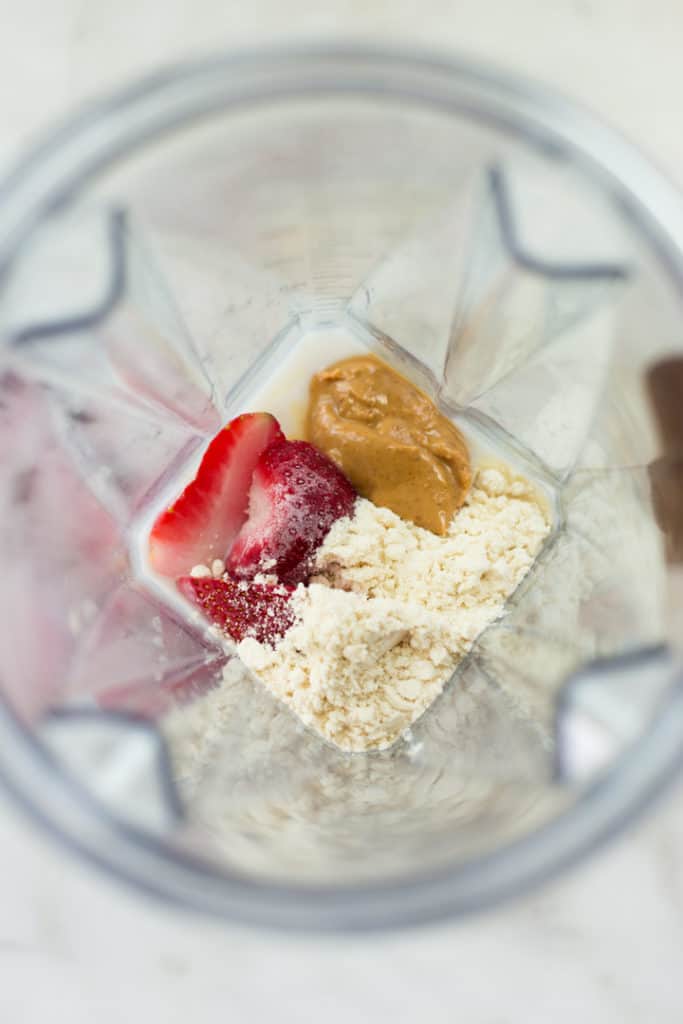
What Protein Powder Is Best For Beginners?
If you're a beginner who's aiming to increase muscle mass and get lean, I generally recommend whey protein. It's popular amongst fitness aficionados and gym goers.
It's also got all the essential amino acids and is the easiest to digest UNLESS you have sensitivity to milk. If this is the case, go with pea protein. See my post comparing whey protein vs. pea protein! Both are good overall, but one might be better for your unique goals and body.
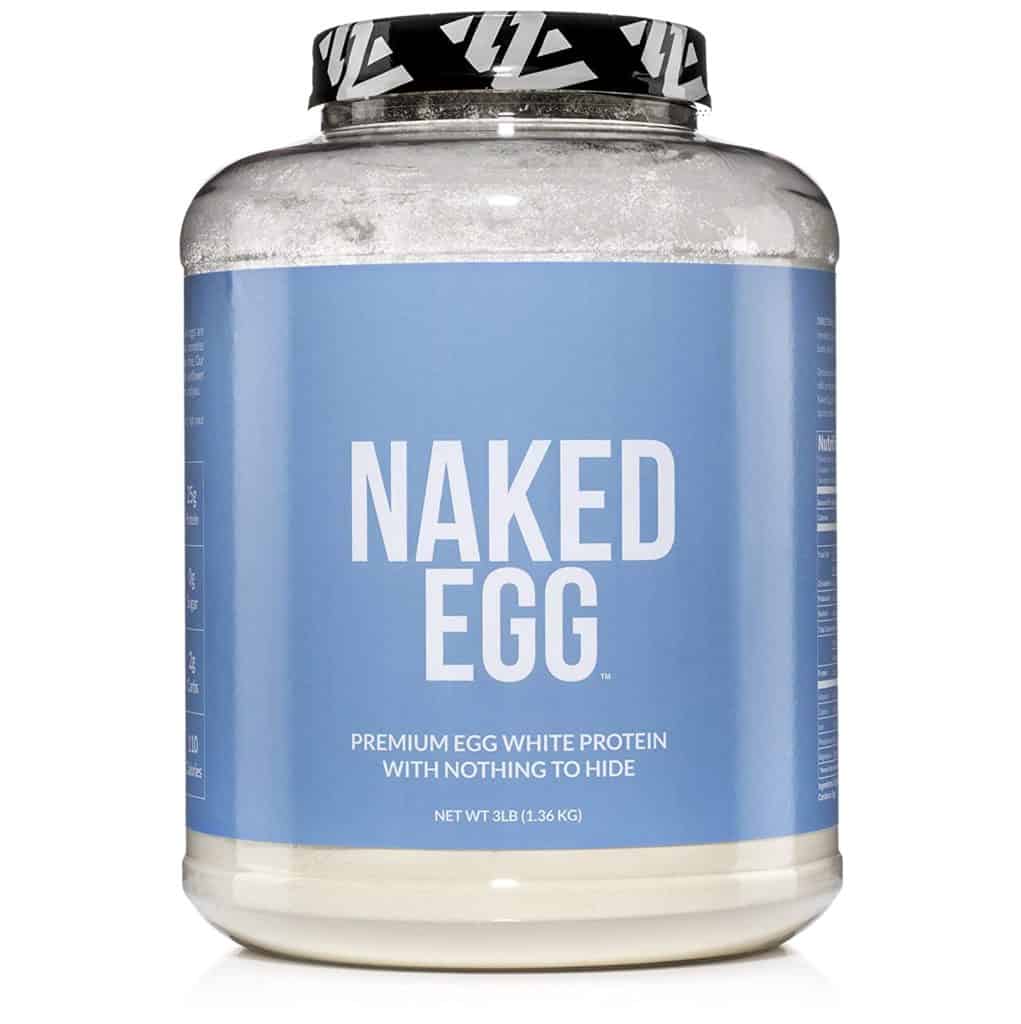
Which Protein Powder Should I Use?
So you've finally decided that protein powder is something you'd like to try. Yay! But a single trip to the supplement aisle has you feeling completely overwhelmed. Yikes! Here's a mini protein powder guide on how to choose based on your goals...
1. If You Want To Build Muscle...
You should pick out a protein powder that has a high biological value. What exactly does that mean? Put simply, the body can absorb and digest it easily.
And the protein powder with the highest biological value is...whey protein! Another upside to whey is that it's packed with compounds (called bioactive milk peptides) that help to reduce stress and improve sleep. Learn how to Make Protein Pancakes + 4 Easy Protein Pancake Recipes
2. If You Want To Lose Weight...
Make sure you choose a protein powder that has no added sugar or sweeteners. And you'll also want to avoid ones that have BCAAs (Branched-chain amino acids) because they encourage weight gain. There are differing opinions on this, but the majority of studies say these amino acids encourage weight gain.
Any of the protein powders will work well for you (whey, casein, egg, plan-based) as long as you avoid the sugars and BCAAs! Delve deeper by reading this post; The 4 Best Protein Powders and How to Choose a Good One.
3. If You Want To Maintain A Vegan Lifestyle...
Skip the egg or milk-based proteins and find a plant based option. There are plenty (planty?) to choose from! You've got soy, hemp, pea, rice, pumpkin powder, and more. Check my Ultimate Guide to The Best Vegan Protein Substitutes for more helpful info.
Just keep in mind that these are incomplete proteins, which only means that they can't provide ALL the essential amino acids your body needs. But as a vegan, you probably know how to eat a balanced diet.
And FYI, cleanish Brand Plant-Based Protein Powders are made with pea protein. Easily mixed, you can enjoy the flavor and nutritional boost in a glass of water (1 scoop cleanish protein with 10-12 oz. cold water) or add to a smoothie.
*I'm in the camp that you should avoid ones made from GMO products. Go for organic protein powders if at all possible.
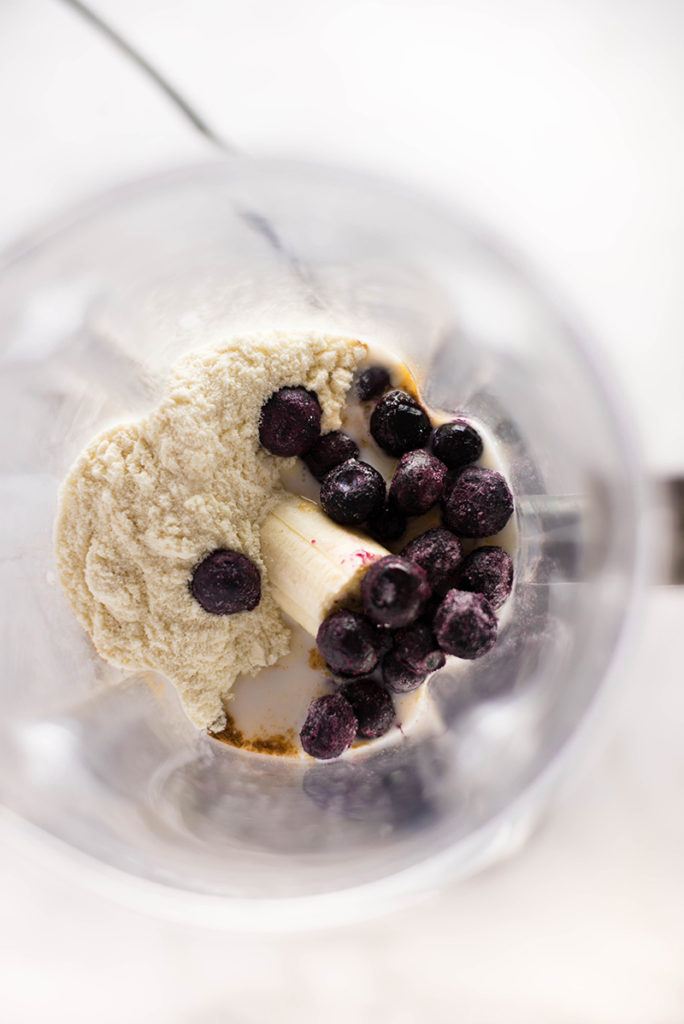
Try It In These Smoothies
The easiest place to begin with protein powder is in a delicious smoothie. Try your hand at one of these recipes!
- Blueberry Muffin Protein Smoothie
- Pumpkin Cheesecake Protein Smoothie
- Green Protein Smoothie
- 5 High Protein Fruit Smoothie Recipes for Weight Loss
This post contains affiliate links for products I use regularly and highly recommend.

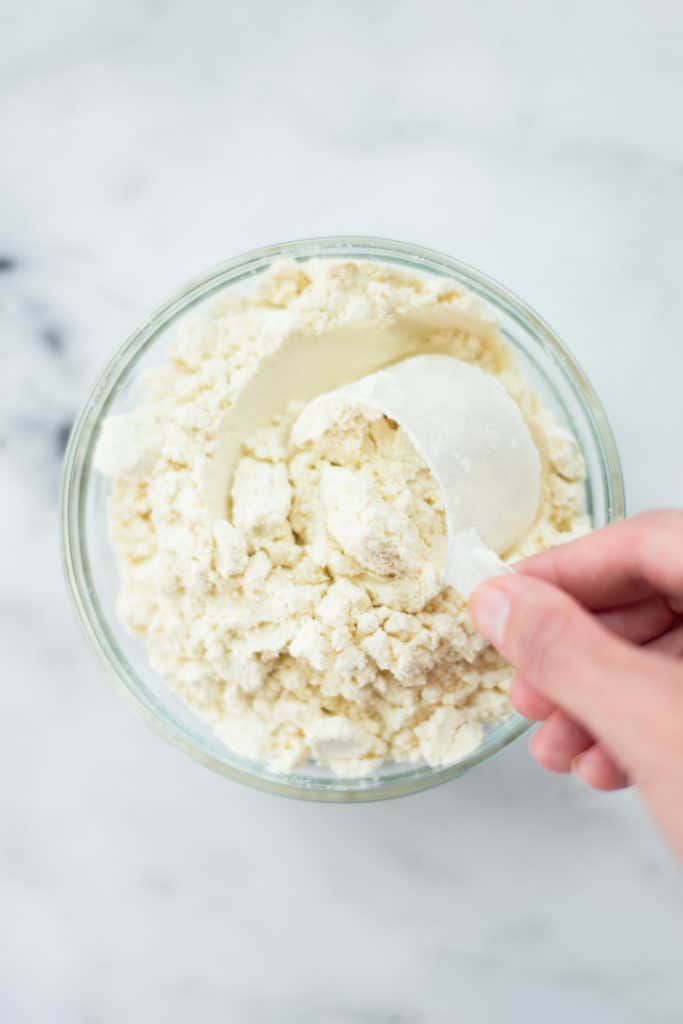

Comments
No Comments